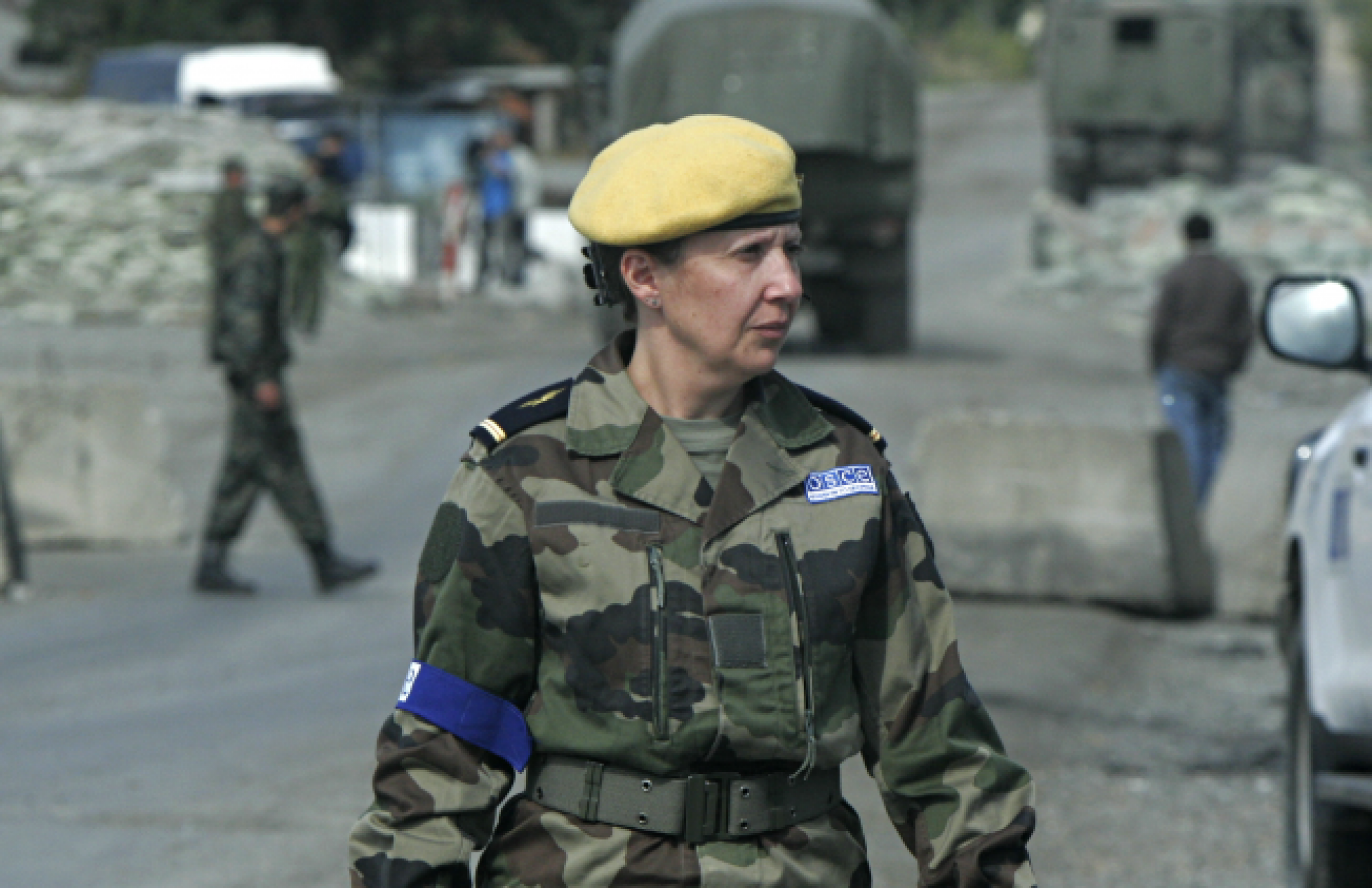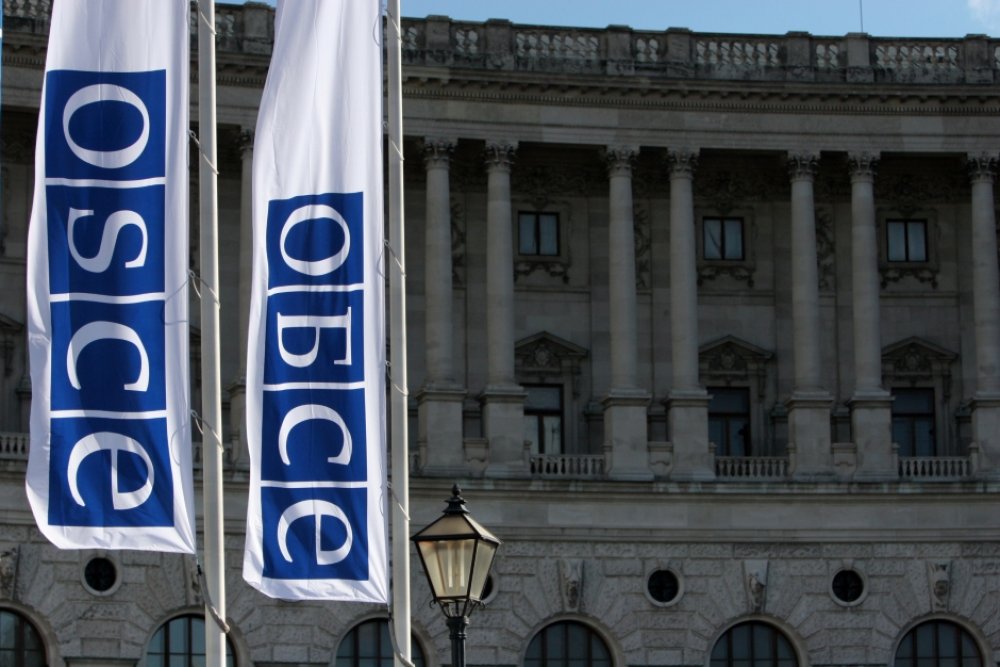Photo: OSCE/David Khizanishvili

International Women’s Day 2014; The OSCE/ODIHR inspiring for Equal Gender Representation in the Security Sector
It started as a Socialist political event, the special day to honor women. The holiday soon blended in, into the culture of many other countries located primarily in Eastern Europe, Russia, and the former Soviet Union. As the years went by, and the day to honor women became better known and grew in popularity, the special day lost most of its political flavor to become simply an excellent occasion for men to express their love for women in a way somewhat similar to a mixture of Mother’s Day and Valentine’s Day.
It was not until 1977, when Women’s Day finally became an official commemorative day for all women in the world. In that year, the United Nations designated March 8 as the official international day to honor the impact that women’s contributions have on society. This affirmative statement not only gave Women’s Day a global profile; it also gave a new direction, a new theme and a new scope to the celebration. Since, the political and human rights theme connected to International Women’s Day runs strong, and political and social awareness of the struggles of women worldwide are brought out more prevalent year by year, in such a way that they can also be examined in a more hopeful manner.
Today, International Women’s Day is seen as a day to encourage advocacy for women’s advancement everywhere, at any time, and in every way. The special day for women calls for challenging the status quo for gender equality and vigilance, inspiring positive change and cultivating hope that things can and will be done better. This hope – my hope and that of billions of women around the world – is not based on a naïve yearning, a far away goal only to be reached in a distant millennium. The desire to enhance the status of women is as concrete as that what hope for change, faith in reaching what is sought after and love for mankind were always able to achieve together.
The past century has shown with without any doubt that change is possible. Ever since the suffragettes fought their fight for equal treatment of women, since fathers started to support their daughters’ enrolment into higher education and thresholds that once had kept women away from full participation in society had been evened out, that the enhancement of equality in women’s lives made another positive gains. Yet, despite all the striking progress, the world remains an unequal place for many women, and a lot of challenges still lay ahead.
The OSCE works towards addressing these challenges. The organization does so by bringing into public attention gender equal representation in the Security Sector. The OSCE has chosen gender mainstreaming in the Security Sector as it’s central gender theme for the full year 2014. The theme emphasizes how the process of strengthening security and building peace in the OSCE area is impossible without full and equal participation of women in economic, political and social spheres of life. Throughout the year, the OSCE will place focus on women’s advancement in the OSCE area as a whole. Various OSCE special events will occur to mark the economic, political and social achievements of women. Organisations, governments, charities, educational institutions, women’s groups, corporations and of course the media will be included. Since the vast array of communication channels, advocacy spokespersons, research on equality, campaigns and corporate responsibility initiatives means everyone can be an advocate, inspiring change for women’s advancement.
The OSCE has chosen a clear path forward. The organization now only needs to keep committing itself and through that, work on recruiting others to join in on the theme. The OSCE is working towards this by engaging national authorities, especially Ministries of Interior, to direct all effort they can towards including more women in the nation’s security forces. Direction will also be given to developing gender-sensitive training modules and methodology and to measuring the effects of the heightened number of professional women working in the security sector.
By choosing this theme as a leading theme for 2014, the OSCE participating States have agreed that the role of the security sector is not only to defend state interests but also to protect its citizens and to address threats to human security. Upholding human rights and fundamental freedoms, on which democratic societies are based, makes for more effective, responsive, accountable and transparent security sector institutions. To this end, the OSCE has long acknowledged that equal rights for women and men and the protection of all human rights are essential to sustainable peace and security. A security sector that is gender balanced and diverse can therefore better and more fully meet the needs of the community it serves. Increased effectiveness of the security sector will need to include a gender sensitive approach in the daily activity of the police, armed forces, border agencies and other security sector actors, in order to strengthen their overall effectiveness and responsiveness. When security providers pay attention to the needs and rights of both women and men, they become better professionals and, in turn, can better protect the entire community.



Comments
* Your email address will not be published